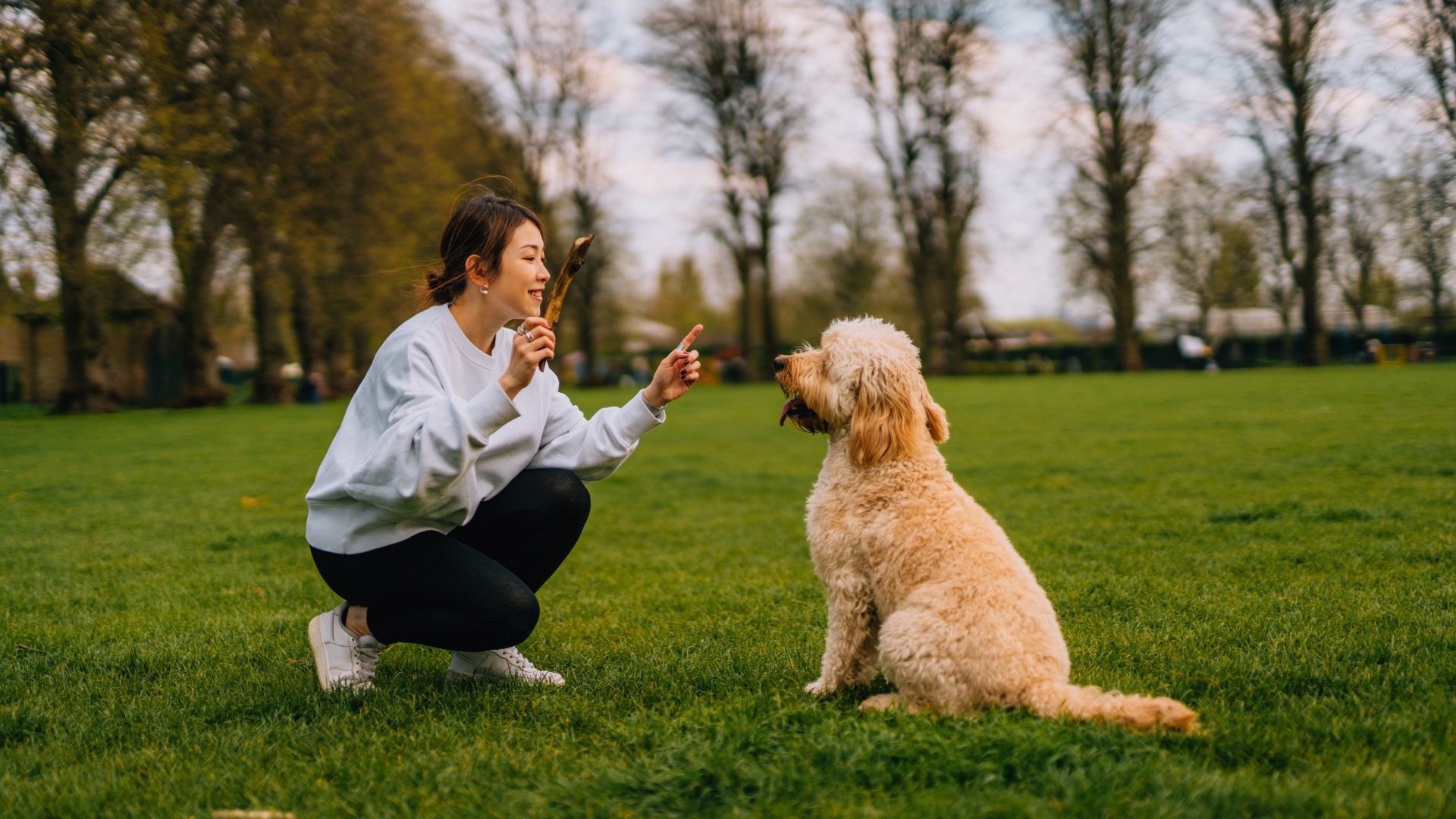
Dog training has changed over the years. Often, training dogs was all about exerting dominance, making your dog see you as the ‘alpha’ of your pack, and using negative reinforcement.
However, things have thankfully shifted. Now, listening to your dog, taking into account their needs, and using positive reinforcement are all recommended.
Like humans, dogs want to be listened to, and want to build that connection with those closest to them, so it’s no surprise that more aversive and dominance-based training methods are seen as outdated now. Instead, you’ll be more likely to be treating your pup to the best dog puzzle toys for enrichment and stimulation – and fun!
In a recent Instagram post, Carolyn Martell, an expert trainer and the founder of Good Dog Training, has taken a closer look at what we should remember when it comes to training, and it makes for such an interesting read!
“Training is so much more than barking commands at your dog or teaching your dog to listen to you,” says Martell, “It’s also about learning to listen to your dog.”
She describes training as a “connection” between you and your dog, and as a conversation rather than as something that’s one-sided. As she puts it, “Imagine going through life never being listened to, being ignored when you ask for help, being ignored when you seek connection. It’s no wonder so many dogs ‘act out.’”
Martell goes on to bring up a scenario where an adult dog would bark and lunge at other dogs, and had previously attacked other dogs when made to interact with them. Previous trainers had put a muzzle on him and made him interact, shocking him if he growled or displayed aggressive behaviors. As a result, the dog felt unsafe and ignored by his parents, and learned that he was on his own.
When working with Good Dog Training, his need for space was respected, and he was listened to. Martell explains, “We helped him understand that he was safe and we would help him. He is no longer dog-reactive and can play nicely with other dogs with proper introduction.”
Dog training isn’t always easy, and it can take time for your dog to learn. But, if you work together with each other you’ll have more chance of getting the results you’re after. You and your dog are a team, and you’re working together to set them up for a happy life – you’re not trying to get one over on your dog, you’re collaborating.
For more information about why this training works, here’s the science behind positive reinforcement for dogs. And, here’s how to spot dog trainer red flags to help you select the right trainer for you and your pup.







